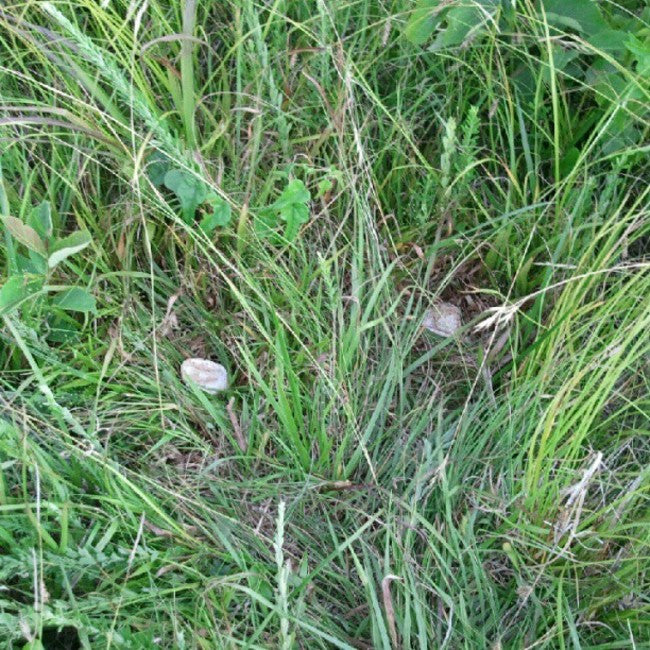
We milk the goats twice per day. Once around 7am and once around 7pm. They like consistency and if you can get the milkings twelve hours apart that tends to work best. Typically, when we go out to get the goats Sophie and Sheba will greet us at some point along the way. They hear the gate rattle and if they're not busy doing something else they'll come up and walk with us.
On the weekends I'll usually join Sweetbreads since I don't always get to join during the week. On Sunday morning it was business as usual. Sophie and Sheba joined in for the walk. However, on the evening walk they were lagging behind. I didn't know why. It made me worry. Were they sick? Were they dehydrated? Did they have lyme disease? So many thoughts run through our heads these days at even the faintest sign of something abnormal. Being observant is critical.
As we walked to the back pasture they meandered along about 20 yards behind. Upon rounding the corner their little heads could not be seen above the tall grass. They weren't following any longer. Hmmm. They must have found something. Maybe they got a vole or found a mini-pond from yesterday's rain where they could hide out and stay cool.
So we walked the goats back and left them for their night of grazing (since it's so hot they graze more at night than in the day). On the way home I could see Sophie's little head in the grass. A poof of white not too far off the road. She looked up innocently as we approached.
Uh oh Sophie, the parents are breaking this party up. What's going on in there? We waded through the waist-high grass and invaded their impromtu den. The ground was full of empty wild turkey eggs. Probably four or five scattered across the area. No telling how many they hauled off and ate elsewhere. Sophie was happily munching away on her newest find.
Then along the edge we spotted a grassy cave. That was the nest. Neatly tucked away, full of dried grass and feathers. And one untouched egg. Dessert. We took it and now we're debating whether to eat it ourselves or put it under our broody hen (or the guinea) and see if she'll hatch it out.





